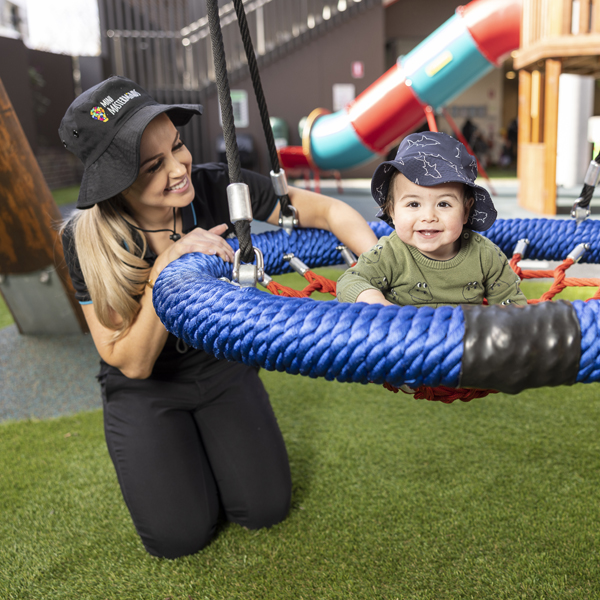

What is a modern parent? If you’re scratching your head in confusion, don’t worry – you’re not alone. Contrary to popular belief, there hasn’t been a sudden renaissance in the world of parenting, with new-age techniques and strategies for raising your little ones. Instead, being a modern parent is all about adapting to the ever-changing world around us, and finding new ways to connect with and guide our children. In this blog, we’ll explore what it means to be a modern parent and offer up some tips and tricks for those of us just trying to figure it all out. So grab a coffee, sit back, and let’s dive into the world of modern parenting.
In the past few decades, there’s been a decline in authoritarian parenting approaches. The traditional, strict, and often fear-based approach to parenting has given way to a more empathetic and open way of interacting with our children. While this change is certainly positive, it’s important to remember that at the end of the day, we are still parents, not friends to our kids.
An entire avenue of entertainment has opened up for parents with the release of portable digital media. Kids are obsessed with content creators that are strikingly different to the traditional television cartoon characters you may have grown up with. YouTube and learning apps are dominating the educational landscape when it comes to new forms of media catered toward children. Parents should be discerning about the type, and duration, of media they expose their children to. Mini Masterminds is an advocate for using technology to support learning and play as it is an interactive and informative medium that operates for kids at all maturity levels. Be wary of educational YouTube videos – pay attention to what your child is watching on a TV or tablet – the threat of exposure to violence or nudity is smaller but similarly potent as the chance that whatever’s being shown is complete drivel.
Mini Masterminds endorses the platform Reading Eggs at all of its childcare centres throughout Sydney and NSW, which you may have already heard of. Reading Eggs is an online learning program designed to help young children develop reading and literacy skills through a range of interactive games and activities. The platform features a wide range of resources and tools, including reading lessons, phonics activities, and progress-tracking tools, all aimed at helping children learn to read in a fun and engaging way. We offer a free subscription for all children at our centre to help them continue their learning at home.
Obviously, too much screen time has negative effects. But part of being a modern parent is parenting in affinity with new technologies. They are a powerful accessory for child development, but not a substitution for parent-child interaction.
Practising positive discipline is about finding alternative ways to guide our children’s behaviour without resorting to physical punishment or raised voices. Positive discipline techniques include setting clear boundaries, using positive reinforcement, and modelling good behaviour.
Research has shown that physical discipline such as spanking and yelling only contributes to making children more aggressive later in life. By using positive discipline techniques, we can create a supportive and nurturing environment for our children, where they feel safe and loved. Set clear boundaries in a calm and respectful manner, and always rationalise your instructions so that your child understands why you are asking them to do, or not do, something. For example, if your child is hitting their sibling, you could explain calmly why hitting isn’t allowed, then offer an alternative activity. Children are not mini-adults and their cognitive processes can’t make the same judgements that we see as being common sense.
Positive discipline is about teaching our children to make good choices, rather than punishing them for making mistakes. By setting clear expectations and consequences, and offering praise and rewards for good behaviour, we can help our children develop the skills and confidence they need to thrive.
The advent of technology has made it easier to be a modern parent, but in the age of hyper-connectedness and hyper-information, parenting anxieties have reached new levels. From organic baby foods to parental locks on media, the online space has given us a vast medium to share our worries with other parents. Beware of the echo chamber – being a modern parent doesn’t mean being a bubble-wrap parent.
In today’s world, there are many potential dangers that parents worry about, from accidents and injuries to cyberbullying and online predators. However, while it’s important to take steps to protect our children, it’s equally important not to fall into the trap of overprotective parenting. By shielding children from all potential harm, we may unintentionally prevent them from developing important life skills like problem-solving and resilience.
So, if you find yourself feeling overwhelmed by the constant stream of information and advice, it’s okay to take a step back and trust your instincts as a parent. Fostering independence in our children starts from a young age, and it’s essential to become comfortable with trusting our own judgement as parents.
Ultimately, being a modern parent is less about a set of instructions and reminders and more about navigating the well-being of your child with the help of technology and other modern interfaces. The cultural shift toward child-centric families, where children are actually heard and not treated like mini-adults, has contributed to the change in parenting styles over the last few decades. Finally, not even online ‘mummy-bloggers’ can actually tell you what’s best for your son or daughter. That’s up to you!

